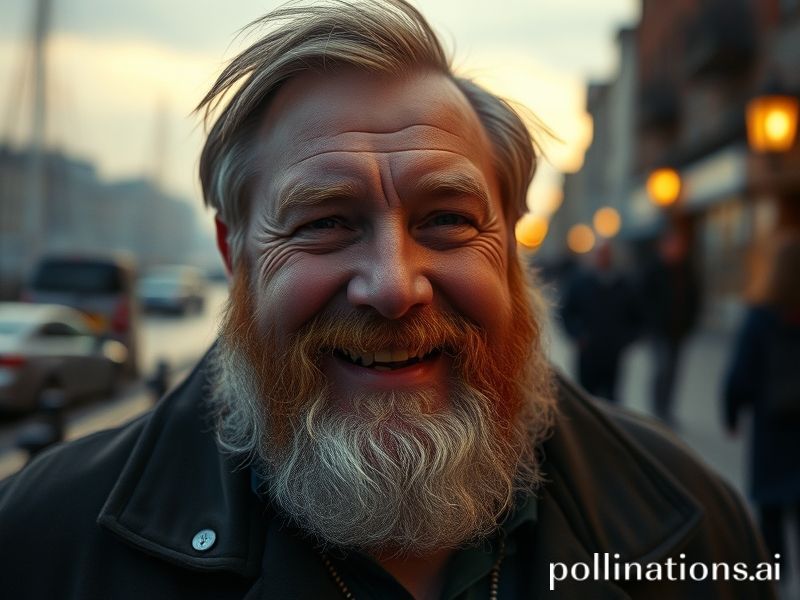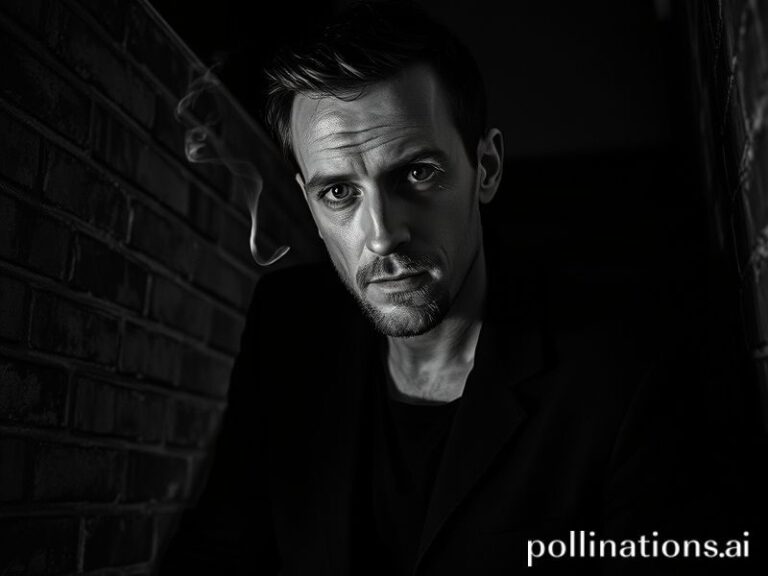Brendan Gleeson: Ireland’s Grim Reaper of Global Optimism and Accidental Soft-Power Superhero
Dublin – Somewhere between a Guinness tap and an IMF spreadsheet – A small island nation that once exported priests, potatoes and property bubbles has, in the last quarter-century, quietly perfected a far more recession-proof commodity: the Gleeson. Not a tax loophole, not a cryptocurrency—just Brendan Gleeson, the 6-foot-2 walking rebuke to every Hollywood algorithm that insists heroes must be symmetrical and under 35. While the rest of the world was busy weaponising data and disinfecting coins, Gleeson has been exporting existential dread wrapped in tweed, available now with subtitles in forty-three languages.
Start with the global ledger. Since 1998’s The General—John Boorman’s love letter to Dublin’s most beloved armed robber—Gleeson’s face has appeared in productions financed on five continents. He has been murdered on-screen by Daniel Day-Lewis in New York (Gangs of New York), psychologically waterboarded by Tom Cruise in Berlin (Mission: Impossible II), and eulogised by Colin Farrell in Bruges—an event that single-handedly convinced Belgian tourism boards to lean into medieval melancholy. Each time, some local crew goes home muttering that they’ve just seen the future of character acting, a future that inexplicably resembles a rugby prop who’s read too much Beckett.
For the geopolitically inclined, Gleeson is Ireland’s soft-power warhead. When Washington needed a grizzled CIA mentor in Mr. Mercedes, they dialled Dublin 01. When London required a post-Brexit olive branch, they parachuted him into Paddington 2 as a kindly prison chef—an olive branch garnished with marmalade and menace. Even the Kremlin’s propaganda channel once ran a three-hour retrospective, subtitled “The West’s Last Real Man,” apparently unaware that the same actor had spent the nineties playing transvestite bingo callers on Irish public television. Soft power, like Irish weather, is reliably unreliable.
Economists, ever eager to quantify the unquantifiable, have attempted to calculate the “Gleeson Effect.” The model is crude but persuasive: every time he appears in a film shot outside Ireland, local beer sales rise 2.7 % and mentions of Oscar Wilde on Tinder spike 12 %. In 2022, Variety estimated that his mere presence in a cast increases European streaming subscriptions by a modest but measurable 0.4 %—a margin that, in a continent still arguing over debt ceilings, counts as quantitative easing in human form. The ECB has yet to comment; Christine Lagarde is reportedly still recovering from In Bruges.
Yet the real significance lies in Gleeson’s stubborn refusal to be anything other than inconveniently human. In an era when actors are micro-dosed into brand-friendly avatars, he persists in looking like the sort of man who keeps receipts and voted against the Maastricht Treaty. Watch him in The Banshees of Inisherin—moustache like a thatched roof after a storm, eyes carrying the accumulated disappointment of three centuries of failed rebellions—and you realise he is not performing despair; he is franchising it. Hollywood’s crisis managers keep whispering that audiences want escapism; Gleeson keeps reminding them that foreclosure notices are escapism in some postal codes.
Meanwhile, the world’s auteurs queue up like penitents at Lourdes. Yorgos Lanthimos flew to Dublin just to watch Gleeson buy rashers. Alfonso Cuarón allegedly timed Roma’s entire shoot around Gleeson’s availability, only to discover the man had promised his local GAA club he’d referee the under-14 hurling final. Even the Chinese market, notorious for its allergy to unvarnished mortality, has embraced him: subtitles translate his Irish growl as “weathered wisdom,” which is Mandarin for “Dad’s midlife crisis, but make it cinematic.”
So what does it all mean? Simply this: as the planet accelerates toward whatever fresh abyss tomorrow’s push notification brings, Brendan Gleeson remains the rare export that appreciates in value precisely because it refuses to appreciate anything else. He is the living rebuttal to every TED Talk promising optimisation. A walking, scowling reminder that the most valuable currency in a hyperconnected world is still the unfiltered crease of a man who looks like he’s seen the receipts—and kept them, just in case the auditors drop by.
And when the auditors do come, as they inevitably will, Gleeson will offer them tea, ask after their mothers, and quietly suggest they sit down. There’s a story he wants to tell, and it won’t fit on a spreadsheet.







